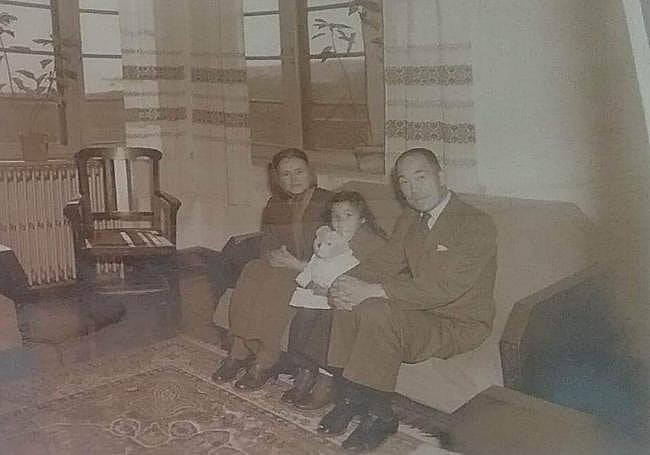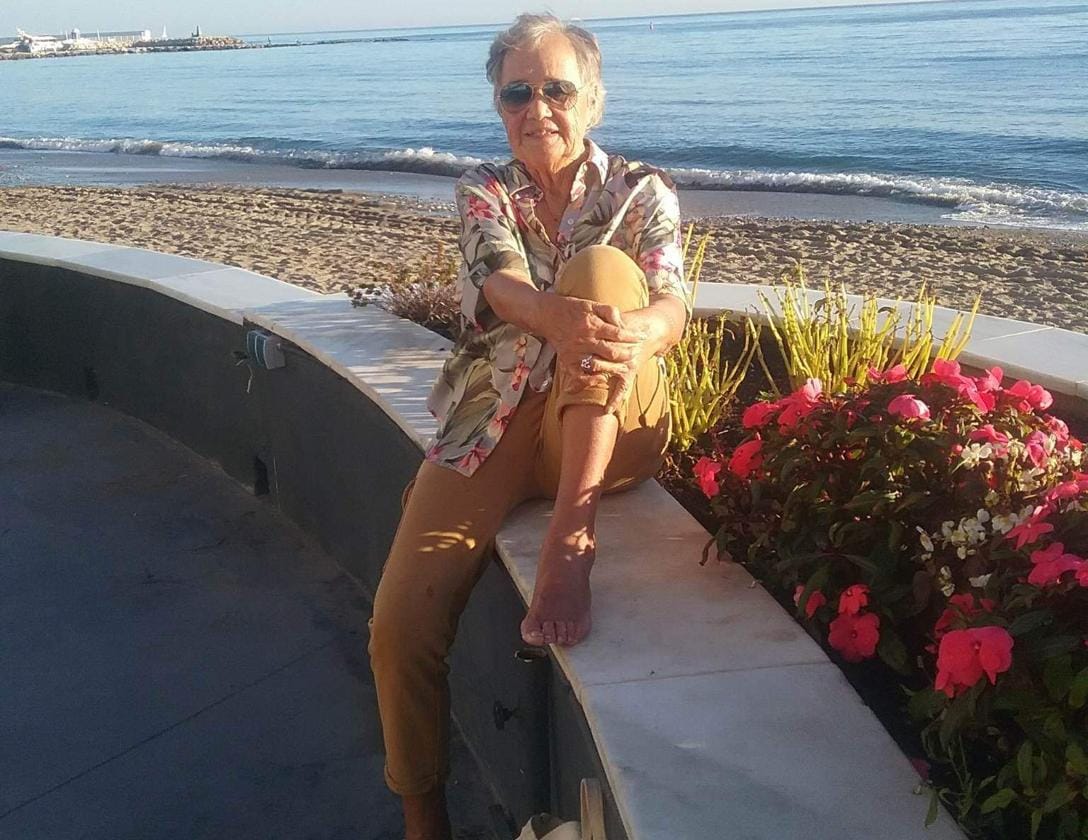'If you're not flexible and can't adapt, it's going to make your life stressful'
Before calling Spain her home, this Marbella resident lived on four continents, from her childhood in China and teenage years in the States to motherhood in Africa and retirement in Portugal
Myrto Kaltsidou
Marbella
Friday, 24 May 2024, 13:58
Marbella resident Leonie Henry has had to get used to her fair share of change, from leaving post-war China as a young child, to needing a translator on starting school in the States. As a young adult, she embarked on her "African adventure" before moving to Portugal to breed Lusitano horses with her husband. Despite living her later life with a degenerative eye condition that has left her with "very poor" vision, she emphasises the importance of accepting our own circumstances and making the most out of the cards we are dealt.
Leonie was born in Shanghai in 1937, the same year that Japan invaded China in the Second Sino-Japanese War. As the only child of a Chinese father and a French mother, she spent much of her early childhood hiding from bombs in paddy fields and trying to avoid the Japanese military. During this time she witnessed several atrocities: from laying eyes on a dead baby that had been killed by a bomb to watching a top Japanese officer take his own life by 'hara-kiri', a form of Japanese ritualistic suicide. She even recalls the moment when, from her home in Qingdao city, on the Yellow Sea coast, the sky became "illuminated" when America dropped the bomb on Japan in 1945.

Zoom

But in some ways, she had a relatively normal upbringing: "Like all children, I played, I loved nature, I used to like watching things like glow flies." In particular, she credits her parents with keeping her very safe during the war - she was "never hungry" , and speaks highly of her mother, who she thought brave, as a "fantastic cook" and "very good homemaker". Having never attended school in China, Leonie only knew a few words in Chinese and the family spoke French at home.
Following China's liberation in September 1945, the country fell into political turmoil and her father no longer saw a future for the family there. Consequently, they relocated to the States in 1947, when Leonie was ten years old. Her father had secured a position with the UN in New York and Leonie started school in Long Island. She remembers feeling "a bit lost and overwhelmed" on her first day - she even had another student translating for her at the start – but ultimately demonstrated a great deal of adaptability: "I accepted it. That was my condition," she explains.
After attending school for some time in Manhattan, the family moved up north to Maine, on the border with Canada. Her mother, who did not speak very good English and had been away from France for so long, had sought to reconnect with the French-speaking community. This industrial area, with plenty of shoe shops and mills, as Leonie remembers it, was where she had a "very good high school experience" and she carries with her fond memories of skating on the frozen lake near her home.
Following her parents' separation, Leonie and her mother went to Paris. This was only a brief stay, however, as her mother knew some friends – a French military officer and his family – who needed a governess for their young children. They were stationed in Tunisia, at a time when the French were very active in Africa.
From Tunisia to Timbuktu
Her "African adventure", as Leonie calls it, began in 1957, when she took up this role in Tunisia's desert south. It was an "interesting" time for her, which she spent going to the beach, meeting new people, and discovering Africa. But her most special memory happened during her administrative position at the US embassy in Tunis, where she met the American government official who would become her husband, Rex Henry.
The couple then moved to the suburbs of Rabat in Morocco, where they would spend six years exploring this "larger" and more "modern" city. By this time, they had two boys: Mark Henry (Tunisia, 1960) and Jack Henry (Morocco, 1964).
Moving across the Sahara, the family lived in Kaduna, in northern Nigeria; in Chad, in the heart of Africa; and in Dakar, Senegal's coastal capital. Leonie also travelled for fun, to places such as Timbuktu, where she recalls watching "the most glorious sunset": "The sky was red... It was a beautiful show of nature" that "stays engraved on my memory," she says.
Out of all the African countries she called home, Chad was her favourite, despite it being "even more remote" than what she had previously encountered. She describes her time there as an "adventure" and the lifestyle really "appealed" to her: she loved the sense of "community" and the local music, which was "lovely to watch and experience". Throughout her time in Africa, she also enjoyed the local dishes, namely Moroccan couscous and a Senegalese fish dish prepared with Nile perch.
When asked about what it was like to raise two "rambunctious" boys who appeared to be constantly on the move, Leonie says that there were "no problems": they were "flexible", made friends easily and engaged in all sorts of "escapades" with the neighbours' children.
After leaving Africa in 1974, they were on home leave in the States, but with her husband's early retirement, they desired a change of scenery. Having made the coastal journey from Marseille to Marbella several times, they had purchased a plot of land in the Spanish town, where construction began on their home. "We liked the place," Leonie says. They thought the area, which was "always very cosmopolitan", a "quiet" and "lovely" location with "very nice homes". Their sons, who were teenagers at the time, went to the French school in Malaga.
Leonie's eldest son, Mark Henry, went on to join the Air Force, where he was sent to the Philippines, before returning to study Chemistry and work for the US Department of Health and Human Services. Her youngest son, Jack Henry, became a fashion designer and opened an atelier in Paris, with designs exported all the way to Japan.
Lusitano breeders
Leonie has always loved animals, especially horses – an interest she shared with her husband, who bought his wife her first horse: "Some people always had a dog. We always had horses," she says. "That was our passion." During her first few years in Marbella, she participated in dressage classes at the Royal Andalusian School of Equestrian Art in Jerez de la Frontera. In 1979, they moved to Portugal and became Lusitano horse breeders, a period when Marbella became their "hideaway in the summer". They stayed in Portugal until her husband's passing in 2010 and Leonie made a permanent move back to Marbella in 2021.
It was in the 70s when she was diagnosed with macular degeneration (AMD), a degenerative eye disease for which there is no cure as of yet. But although it is a "really confining" condition, which has left Leonie with "very poor" vision, she says: "I have to accept it and move on."
When asked about this seemingly inspiring ease with which she adapts to new realities, evident in many of her new beginnings, she responds: "It's part of my character... Anything is possible if there's a will to do it." Her advice? "The main thing is to keep positive. Have faith. Never give up hope. Life can be a wonderful journey, but it's what we make of it."
Leonie is in the process of compiling a memoir and is currently seeking a publisher. "I hope it will give me some satisfaction and that I'll get some benefit out of sharing my experiences," she concludes.
